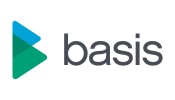The Billing and Invoicing functionality within SAP IS-U provides the ability to bill domestic, commercial and industrial customers across a range of divisions (e.g. Electricity, Gas, Water, Waste Water).
Open Billing Orders
Also known as billing triggers, billing orders represent the fact that a contract/installation needs to be billed. They are created at the time of meter reading order creation (if billing relevant) in a status of “not billable”. Once a valid meter reading is entered (plausible) against the meter reading order, the billing order is updated to billable. All billable billing orders are billed during the billing batch. The presence of a billable billing order implies an issue is present during the billing process.
Billing Out-sorts
The output of the billing process is a billing document. Once produced, various checks can be performed upon this billing document to ensure validity. This includes tolerance limits for monetary values (e.g. if it exceeds a certain monetary amount). This ensures that very high bills are not sent out to customers incorrectly or zero bills. Billing out-sorts must be resolved in order for invoicing to proceed.
Billing Check Failures
A billing check is performed to ensure that a given contract along with its associated billing required data is present. If anything is wrong with either the billing master data or configuration, this is flagged up appropriately.
Contract Billing Blocks
Contract billing bocks can be placed upon the contract to prevent billing from occurring. This can be done for various reasons which are configurable such as customer complaints or during investigations.
Invoicing Out-sorts
This is similar to billing out-sorts except the entire invoice amount is considered as a part of the validation. Invoicing out-sorts prevent large monetary values from being sent to residential customers. They stop the billing/invoicing process and therefore have a material impact on customers and cash-flow.
Invoicing Triggers
Invoicing triggers are created after a billing order has been billed and a billing document produced. The invoicing process runs off the presence of an invoicing trigger. The presence of an invoicing trigger indicates that there is a potential problem in the invoicing process which is preventing the invoice from being generated.
Late Bill
If a bill order has not yet generated a billing/invoicing document past its due date the customer has become late billed. Late billing is a main cause of lost/delayed revenue and also customer complaints. Visibility in SAP is difficult particularly if the agent is resolving another work area. BDEx identifies these issues and display them as a Late Bill work request. This enables agents to see periods of unbilled consumption and ensure the customer is billed in timely a manner.
Invoice Print Document
The invoice document generated in IS-U. Includes open, posted and reversed invoice documents. This work request details the payment status for the invoice indicating whether the invoice amount has been paid in full, partially paid or is open and due.


Post your comment on this topic.